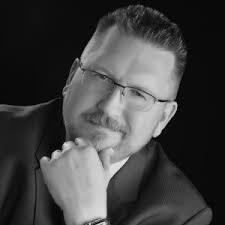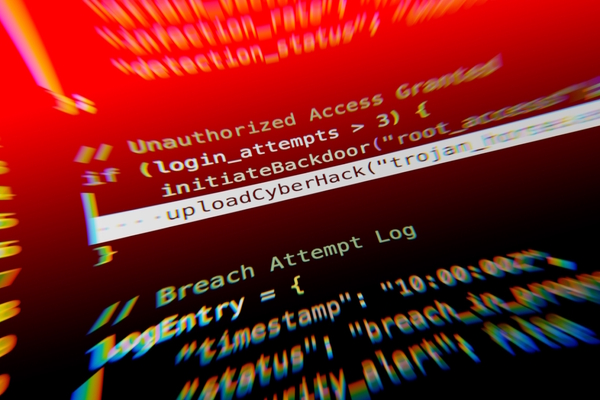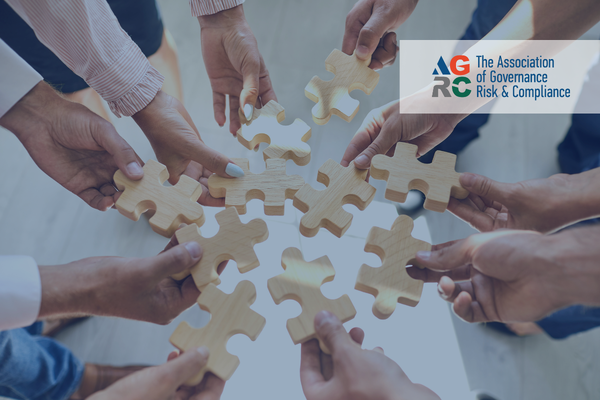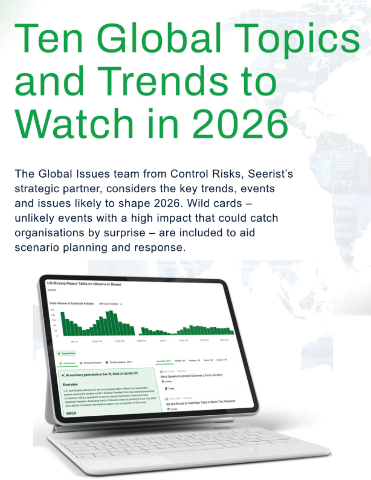American View: The dehumanization leaders ignore becomes the standard they represent

Some security professionals seem averse to accepting uncomfortable facts when it comes to identifying and dealing with potential insider threats. It’s weird; the community seems genuinely chuffed at collecting and acting on seemingly sterile datapoints like login times and locations but always seems to recoil in horror at accepting human admissions of ill intent. It’s like our community is gun-shy when it comes to categorising burgeoning threat actors as such when said threats indict themselves. I find this reluctance an unforgivable dereliction of duty. As Maya Angelou famously said, “When someone tells you who they are, believe them.”
I’m going to illustrate my argument with personal anecdotes rather than work ones. Even though it’s nearly impossible for most readers to work out who I’d be talking about, there are a few regular readers [1] who might be able to put a real name to an anonymised character. Can’t have that. So, personal stories only.
My parents were public school teachers. They chose to teach in schools that served lower-income communities because that’s how they felt they could best contribute to society. Mt father spent one year teaching at the mediocre elementary school across the street from our house then transferred to the poorest elementary school in town.
When we were young, my father would bring me and my sister to work with him one day each school year to see what it was like; learn about folks on the other side of town lived. Most of these visits were interesting but not especially memorable. One visit, however, never left me.
When I was around 12 or 13, I spent the day at the aforementioned poor elementary school. Dad introduced me to the other teachers working his grade level before the kids arrived, then let me watch the rest of the day while he ran his classroom. I followed his first graders to all their activities and learned my father’s techniques for keeping his kids on-task. It was enlightening.

The moment that stood out to me from that tag-along wasn’t anything that my father did; it was an exchange I had with the first-grade teacher across the hall. When the bell rang to signal the end of the school day, I was standing in the doorway of my father’s classroom, watching as his students joyously fled the building. The other teacher waddled over, pointed at a young mixed-race girl who was bounding ecstatically down the hall, and lamented “That poor girl! It’s such a shame that she’s growing up without ever knowing what she is!”
Confused, I suggested “She’s a happy little girl.” I hadn’t learned to recognise subtext.
The teacher looked at me with pity and – quite earnestly – explained how important it was that the girl come to terms with the reality that being “partially black” really meant she was “all black” and therefore shouldn’t act above her station. This adult and certified educational professional acted like she was genuinely concerned for the misguided, cursed, little girl. She said it all like one might chide a pet for getting on the sofa.
I’m ashamed for my hometown that I’m not exaggerating any part of that exchange. Bigotry wasn’t subtle where and when I grew up. Much the same way a runaway lorry isn’t subtle when it smashes through your front window. Kids and adults alike were not just allowed but encouraged to express their bigotry in public back then.
I told my father about the incident on the drive home. He admitted that his colleague – and most of the other teachers on staff there – were unashamedly bigoted as hell, He explained that he did what he could to mitigate the damage his peers inflicted on the kids and their families; that was one of the main reasons he felt he needed to work there instead of at a school with fewer problems. He couldn’t “fix” the school’s culture, but he could damned well advocate on the kids’ behalf.

I had a similar experience the following summer. My father got invited to a family reunion out in western Kansas where he’d grown up. He invited me to come along, promising that I’d get to meet a bunch of new first and second cousins. That sounded good to me.
After a long drive, we arrived at modern neighbourhood out in the middle of nowhere. Dozens of people I’d never met (or heard of) were running hither and yon, in and out of a much nicer house than ours. Adults I didn’t recognise were cooking, eating, chasing kids, socializing, and chain-smoking. [2] Kids of all ages were running around, laughing, snacking, forming groups and scattering at random. I was intimidated by the chaos.
Some boys my age invited me to shoot baskets with them in the driveway. I agreed and missed more shots than I made which seemed to encourage them. I thought I was making friends with my “new” relatives. We all started to relax. After a few games, a cousin asked me what it was like living in the “big city.” I shared a few stories. They asked me what sports I played. I told them I was studying karate. That’s when the oldest of the three cousins I was shooting hoops with grinned and exclaimed, “Cool! You use that to beat up on the niggers, right?”
I didn’t know how to make witty-but-devastating comebacks at that age, so I said “No!” and glowered at my cousin. The kid looked genuinely confused, like I’d declared that I hated birthday cake. He and the other three boys I was playing with all soured, unsure what to say next. They couldn’t understand why I didn’t agree with them.
I left them and hung out in our car for the rest of the afternoon. When my father’s social battery ran out, he found me and asked if I minded leaving early. No arguments from me! On the drive back, I told my dad about the awkward basketball convo. He grimaced and admitted that this was like his extended family out west was like … which was why we’d never visited them before.

My father’s reactions to those two random encounters with dyed-in-the-white-hood crap-bags taught me a fundamental lesson. To mis-quote Maya Angelou, when someone lets their guard down and shows you how awful they really are inside, believe them. Then trust them to inevitably behave in accordance with their nature. Sure, I know people can be mentored to evolve out of their bigotries; I try to help facilitate that every chance I get. That interest in maturation doesn’t, however, mean I’m willing to pretend like a bigot isn’t a bigot. Once a person reveals that their worldview involves dehumanizing their peers, partners, and customers I believe it’s essential for the organisation to actively monitor their communications and activities for unprofessional behaviour … and to be prepared to interdict their acts of applied bigotry.
This is, quite literally, insider threat management. The reason we search for destructive worldviews has nothing to do with “woke” values or “right-think” nonsense. [3] In reality, it’s a matter of identifying people whose twisted understanding of society rationalises treating some people as less than fully human. Once a person internalises a bigoted worldview, they’re primed to justify and even celebrate unprofessional, discriminatory behaviour, both in themselves and others. By definition, these bigots are burgeoning insider threats specifically because they believe that violating standards of professional conduct is not only allowed but is good for society.
I can’t believe I have to clarify this, but such a worldview is incompatible with a professional business environment, full stop. This is why I argue that such people must be flagged for increased surveillance by the security organisation, if for no other reason than to interdict their actions that subvert good order and discipline.
Further, organisations that fail to identify and correct discriminatory conduct will – through their inaction – further harm their own security posture. That is, overlooking bigoted acts within the ranks will ablate workers’ morale and their trust in leadership. This loss of confidence, in turn, leads to lower wilful compliance with essential security controls. When people discover that their leaders passively condone bigotry and discrimination in the organisation, they lose all motivation to protect said organisation.
All this is to say, why is this controversial? Why are so many security professionals squeamish about flagging disruptive workers as such and taking action to mitigate the preventable risks they present? Sure, I get that blatant racism is official U.S. government policy now-adays. But private enterprise doesn’t have to emulate the vile conduct demonstrated by our Dollar Store Dictator and his mewling sycophants. We can live up to our professed core values and demonstrate beyond any shadow of a doubt our collective commitment to human rights, justice, and professionalism. We can … and we must.
[1] I’m looking at you, Eduardo!
[2] As was the style at the time.
[3] As the bigots themselves will disingenuously claim.

Keil Hubert
You may also like
Most Viewed
Winston House, 3rd Floor, Units 306-309, 2-4 Dollis Park, London, N3 1HF
23-29 Hendon Lane, London, N3 1RT
020 8349 4363
© 2025, Lyonsdown Limited. Business Reporter® is a registered trademark of Lyonsdown Ltd. VAT registration number: 830519543





